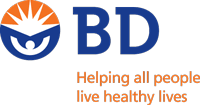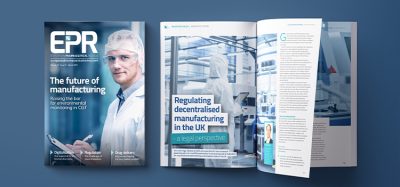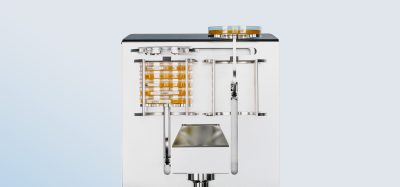Practical Application of RMM in Pharmaceutical Manufacturing
Supported by:


16 December 2014
Supported by:


16 December 2014
This pharma webinar was presented by Scott Sutton Ph.D. – President of Pharmaceutical Microbiology Forum & Owner of The Microbiology Network, and Dr. Yongqiang Zhang – Senior Scientist at BD Diagnostics.
The application of Rapid Microbiological Methods (RMM) is a topic that has gained interest over the past few years as pharmaceutical manufacturers investigate and look to gain improved efficiencies across all areas of their businesses – including the microbiology laboratory. This pharma webinar demonstrated how a rapid method can provide a solution to a common microbiological testing problem for pharmaceutical manufacturers – process water microbiology testing.
Keynote speakers
Dr. Yongqiang Zhang, Senior Scientist, BD Diagnostics
Examination of the microbiological quality of water used for manufacturing pharmaceuticals is integral to current Good Manufacturing Practices (GMP) and ensuring product safety. Membrane filtration, the conventional method for assessing microbial burden in water, takes three to seven days to complete. Valuable opportunities for intervention could be missed due to a delay in obtaining test results. In this study, we assessed the effectiveness of flow cytometry as a rapid microbiology method for water analysis. The data with four representative bacteria [Burkholderia cepacia, Escherichia coli, Pseudomonas aeruginosa and Staphylococcus aureus] indicate that a low level bacterial presence in water can be rapidly detected and enumerated. These results highlight the potential of flow cytometry for real time monitoring of the microbiological quality of water in pharmaceutical manufacturing.
Dr. Zhang has been working with the Industrial Microbiology Applications group within BD Diagnostics since 2012, conducting feasibility studies and providing advanced technical support for the BDFACSMicroCountTM automated flow cytometer platform. Prior to joining BD, Dr. Zhang was a research fellow at Johns Hopkins School of Medicine, where he studied mechanisms of antifungal agents and fungal pathogenesis. Dr. Zhang obtained a doctoral degree in 2003 from the University of Wisconsin-Madison in Plant Pathology, where he studied regulatory mechanism of metabolism.
Scott Sutton Ph.D. – President of Pharmaceutical Microbiology Forum & Owner of The Microbiology Network
There has been excitement about the potential of RMM in QC microbiology since the ATP bioluminescence method was commercialised in the early 1970s. After 45 years however, pharma microbiology is notable for its lack of adoption of these methods. This presentation will examine this situation and offer some potential explanations, as well as recommendations for better microbiology service to the pharmaceutical industry.
Scott Sutton is the Principal of Microbiology Network, Inc (http://microbiologynetwork.com/) a company he started in 1996 as a means to encourage training and communications within the microbiological community. The Microbiology Network operates two Email discussion groups – the PMFList (for pharmaceutical microbiology) and the PSGDList (for stability issues). With over 80 publications and hundreds of presentations, Scott is a recognized consultant and trainer with emphasis in GMP, investigations, Environmental Monitoring and contamination control (both Aseptic manufacturing and non-sterile production facilities) as well as microbiology laboratory audits and operations. Dr. Sutton is an active author and speaker for the industry, supports ASM, PCPC and PDA, and has served with the USP Analytical Microbiology Committee of Experts since 1993.
Supported by BD
BD is a global medical technology company that is advancing the world of health by improving medical discovery, diagnostics and the delivery of care. BD leads in patient and health care worker safety and the technologies that enable medical research and clinical laboratories. The company provides innovative solutions that help advance medical research and genomics, enhance the diagnosis of infectious disease and cancer, improve medication management, promote infection prevention, equip surgical and interventional procedures and support the management of diabetes.
Find out more: www.bd.com
Related topics
Microbial Detection, Microbiology, Rapid Microbiological Methods (RMMs)








